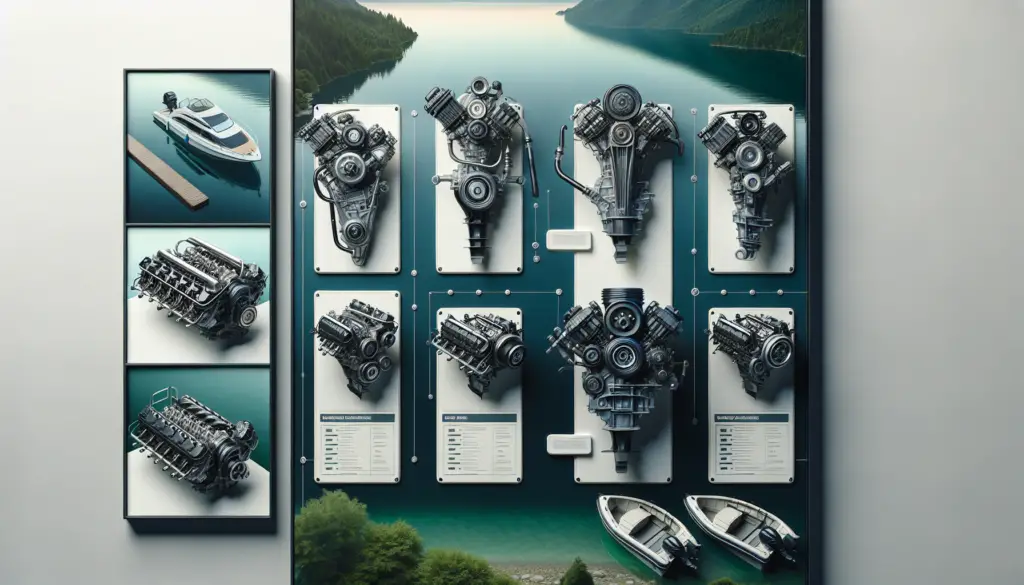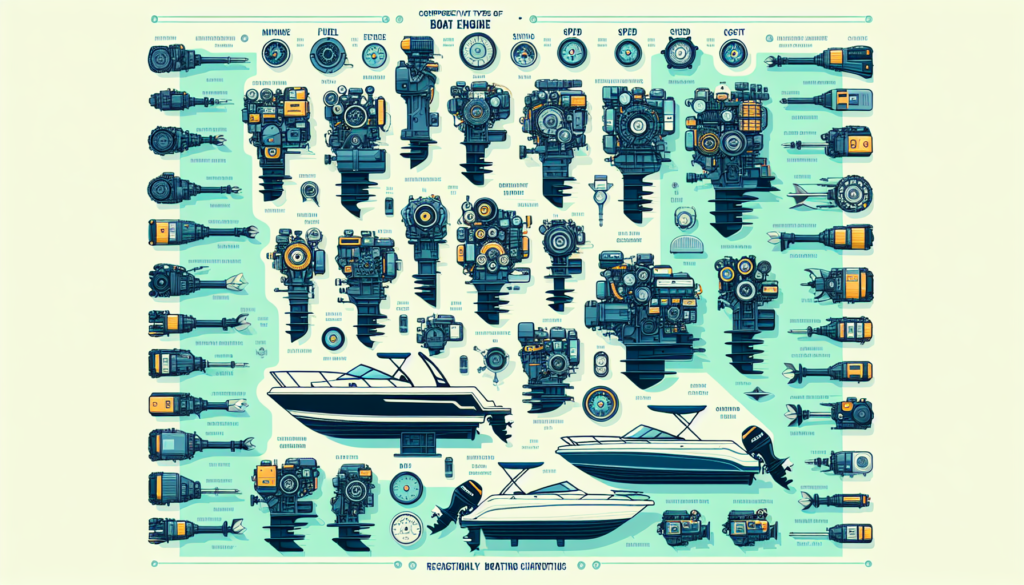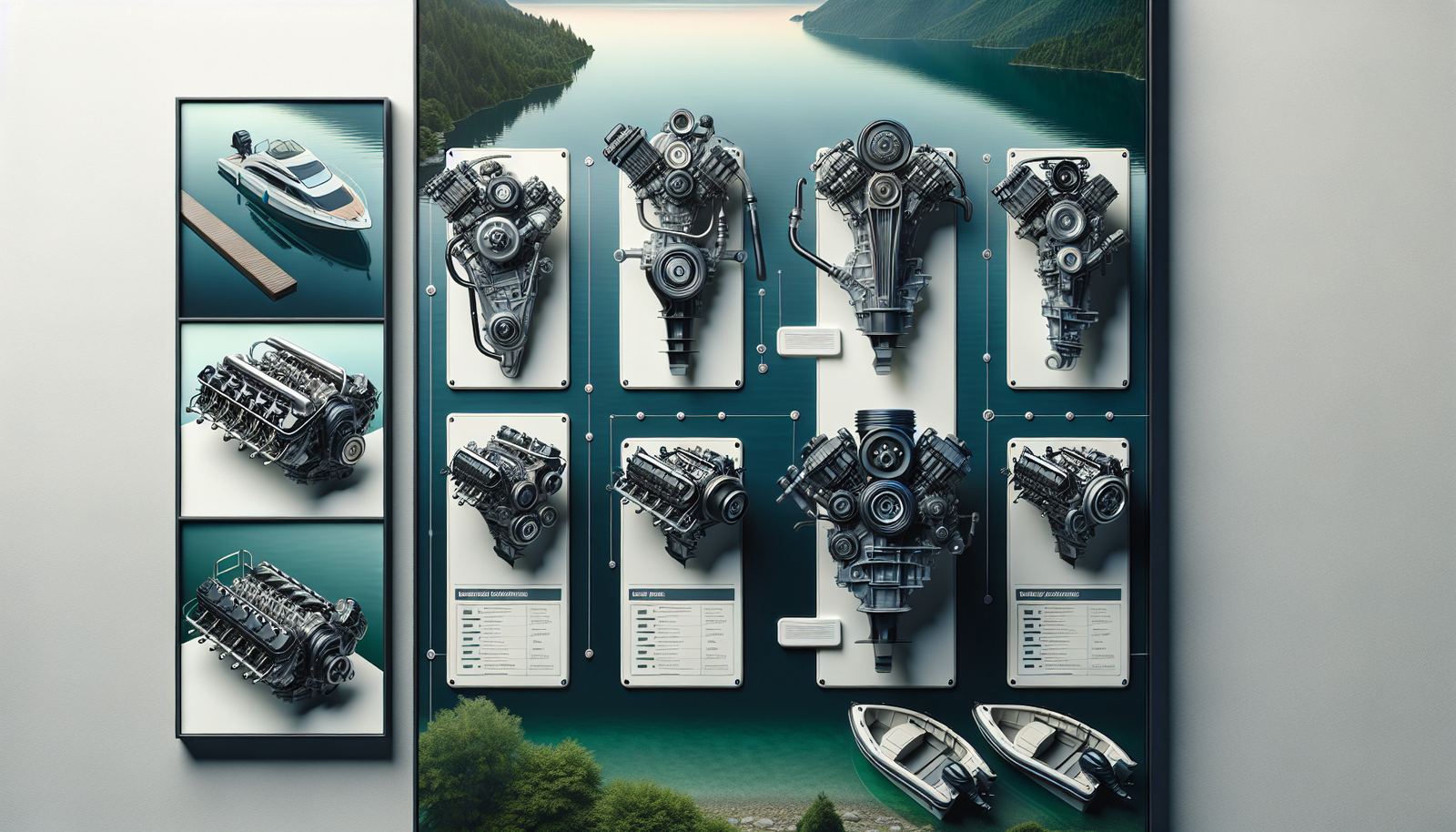Navigating the wide range of boat engines can feel like a daunting task, especially when you’re seeking the perfect fit for your recreational boating needs. It’s not just about horsepower; factors such as fuel efficiency, maintenance needs, and compatibility with your boat’s design play crucial roles too. In this article, “How to Choose the Right Boat Engine for Your Recreational Boating Needs”, you’ll find a comprehensive guide tailored to simplify your decision-making process, helping you get back on the water with an engine that suits your individual boating lifestyle.
Understanding the Types of Boat Engines
When it comes to recreational boating, the type of engine is one of the most critical components to consider. Different engines offer varying levels of performance, efficiency, and reliability. Let’s examine some common types of boat engines.
Inboard Motors
As the name suggests, inboard motors are located inside the boat’s hull. They are typically the most powerful type of motor and are ideal for larger boats. They offer excellent stability and fuel efficiency due to their positions deep within a boat.
Outboard Motors
Outboard motors are mounted on the boat’s stern and are visible outside the hull. They are easier to maintain and replace since they are externally located. These motors are perfect for smaller boats since they are compact, easy to control and steer, and don’t take up valuable interior space.
Stern Drive Motors
Stern drive motors, often referred to as inboard-outboard (I/O) motors, combine features of both inboard and outboard engines. They offer a balance of power and maneuverability. They sit just at the waterline, providing better distribution of weight and consequently, improved stability and speed.
Jet Propulsion Motors
A less common type, jet propulsion motors work by sucking in water and then thrusting it out at high pressure. This type of motor is often found in personal watercraft (like jet skis) but can also power larger boats. They are maneuverable and have no exposed propellers, making them safer in crowded or shallow waters.
Identifying Your Boating Requirements
Your boating requirements play a considerable role in determining the perfect boat engine for you. You need to answer a few basic questions.
Frequency of Boating
How often do you plan to go boating? If you’re going to use the boat regularly, you might prefer an engine that is known for its durability and low maintenance needs.
Purpose of Boating
What will you be using the boat for? If you’re into water sports, you’ll need a powerful engine. However, if you’re just cruising or fishing, a smaller, more fuel-efficient engine may suffice.
Number of Passengers
The more passengers and gear you plan to carry, the more power you’ll need in your boat’s engine.
Boating Waters
Will you be boating on calm lakes or choppy seas? For rough or open waters, you’ll want an engine that offers both power and stability.

Consider the Boat Size
The size of your boat significantly influences the type of engine it requires. Larger vessels need more powerful engines than smaller craft.
Motor Size and Boat Length Relation
As a general rule, bigger boats require larger, more powerful engines. The reason is simple: it takes more force to move a large boat than a small one.
Boat Weight
The weight of your boat is another critical factor. Heavier boats require more powerful engines to push them through the water.
Hull Shape and Design
The shape and design of your boat’s hull can significantly affect the type and size of engine you’ll need. Flatter hulls encounter less resistance, while v-shaped hulls require more power to slice through the water.
Checking Boat Engine Power
The power of a boat engine is typically measured in three ways: horsepower, torque, and engine displacement.
Horsepower (HP)
Horsepower is the most common measurement of an engine’s power. More horsepower means higher speed and the ability to carry heavier loads.
Torque
Torque measures the engine’s ability to perform work. In boating terms, the more torque an engine has, the better it is at accelerating and carrying heavy loads.
Engine Displacement
Engine displacement refers to the total volume of all the cylinders in an engine. Greater displacement usually means the engine can generate more power.

Analyzing Fuel Efficiency
Fuel efficiency is a significant consideration in choosing a boat engine. More efficient motors consume less fuel, saving you money and reducing environmental impact.
Fuel Consumption Rate
To calculate fuel efficiency, examine the engine’s fuel consumption rate: how much fuel it uses per hour at a given speed.
Fuel Types
Some engines run on gasoline, while others require diesel. Diesel engines are generally more fuel-efficient than gasoline ones, but they may also be more expensive to buy and maintain.
Comparing Fuel Efficiency among Different Motors
When comparing engines, look at their fuel consumption rates and the type of fuel they use to determine which will be the most economical in the long run.
Evaluating Boat Engine Reliability
Your boat’s engine should be dependable and require minimal maintenance.
General Maintenance Need
Some boat engines require more care than others. Choose an engine whose maintenance needs align with your comfort level and knowledge of engine upkeep.
Availability of Spare Parts
The availability of spare parts for your engine is also critical. Engines from renowned manufacturers typically have more readily available components.
Manufacturer’s Reputation and Reviews
Before choosing an engine, research the manufacturer’s reputation and read reviews by other boat owners.
Adherence to Environmental Regulations
Just as cars do, boat engines produce emissions and noise that can harm the environment. Therefore, understanding environmental regulations is crucial.
Emission Standards
Your boat engine must adhere to emission standards set out by environmental protection agencies. More efficient engines generally produce fewer emissions.
Noise Regulations
Some areas have laws regarding the amount of noise your boat can make. Quieter engines can help you comply with these regulations.
Ecological Impact
Consider the overall ecological impact of your boat’s engine – not just emissions and noise, but factors like water pollution from fuel leakage or improper disposal of engine fluids.
Exploring Modern Technical Features
Many modern boat engines include advanced technical features to enhance convenience and efficiency.
Digital Throttle Control
Digital throttle control provides smoother and more precise control over the boat’s speed.
GPS and Navigation Systems
Some engines can interface with onboard GPS and navigation systems, giving you accurate reports on fuel consumption, engine performance, and even the best routes.
Fuel Management Systems
Fuel management systems monitor your boat’s fuel efficiency and can alert you to changes, ensuring you always get the most out of your fuel.
Understanding the Cost Factors
The cost of owning a boat engine isn’t limited to the initial purchase price. You have to consider maintenance costs and fuel costs.
Initial Cost of the Engine
Boat engines can vary widely in cost. Your budget may narrow your choices or guide you towards used versus new engines.
Maintenance Cost
Basic maintenance tasks like oil changes, filter replacements, and engine tune-ups can add up over time.
Fuel Cost
The most efficient boat engines aren’t always the cheapest, but they can save you money on fuel in the long run. Consider the type of fuel your engine needs and its consumption rate.
Seeking Professional Advice
When choosing a boat engine, it’s always a good idea to seek expert advice.
Consulting Boat Dealers
Boat dealers can provide invaluable advice based on years of experience. They can guide you to engines that best fit your specific boat and boating needs.
Online Boating Communities
Online forums and social media communities offer the chance to learn from other boaters’ experiences and ask questions about specific engines or manufacturers.
Boat Shows and Expos
At boat shows and expos, you can learn about the latest engine technology and get expert advice from a wide array of industry professionals.
Choosing the right boat engine for your recreational boating needs can seem challenging. But with the knowledge of your requirements and the understanding of different types and features of boat engines, you can make a well-informed choice that will ensure you enjoy the water for years to come.


